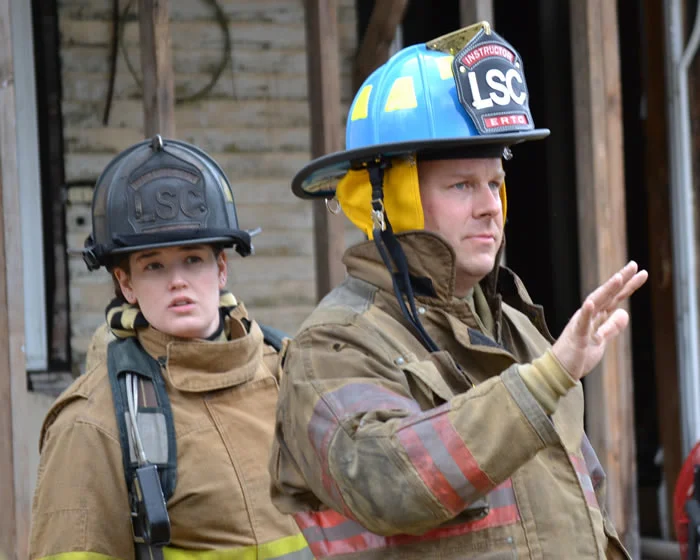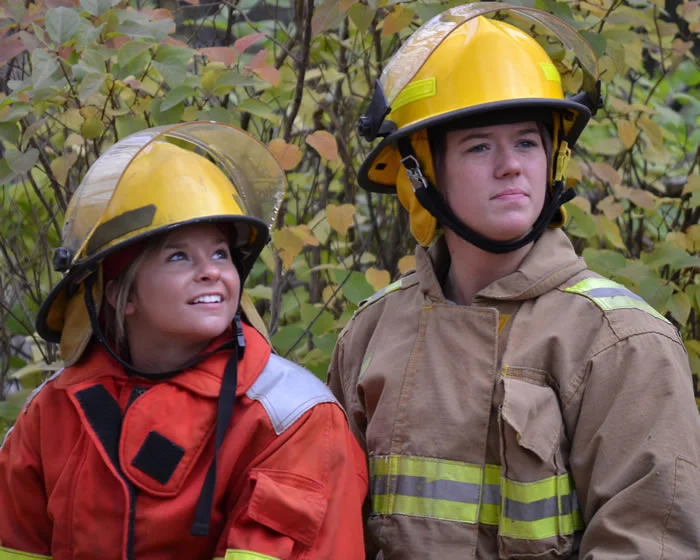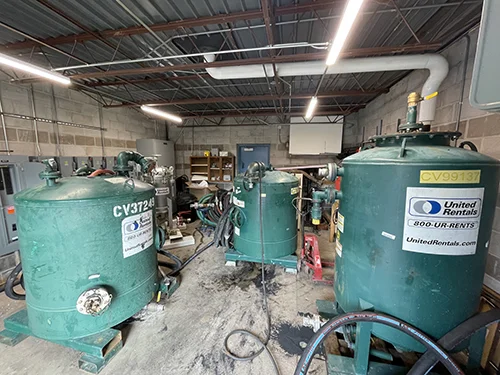Background
Since 1994, the 100-plus acre Emergency Response Training Center (ERTC) at Lake Superior College has trained over 5,000 students to become first responders. This critical work prepares the region and the state’s fire departments as well as other agencies like Homeland Security to save lives, property, and the environment from disasters.
The ERTC was sold to Lake Superior College after being developed by Independent School District 709 with grants from the Federal Aviation Administration (FAA). Like other training sites across the nation developed with grants from the FAA, Lake Superior College used firefighting foam or Aqueous Film Forming Foam (AFFF).
Since the 1960’s, AFFF foam included per- and polyfluoroalkyl substances (PFAS) sometimes referred to as “forever chemicals.” This foam is very effective in fighting flammable liquid fires, but the emerging data suggest these PFAS chemical compounds may increase the risk of serious health problems, including cancer. Between 1994 and 2014, various AFFF foams were used in dozens of annual ERTC training exercises.
Aviation firefighting training at the ERTC’s six-acre burn site ended in 2011. Currently, the ERTC burns only Class A materials (wood, straw) in old shipping containers (Conex boxes) for general firefighting training, in compliance with National Fire Protection Agency guidelines. Lake Superior College is committed to following current laws and industry best-practices in its firefighting training.

Changes in 2021
In 2021, Governor Walz signed a law banning PFAS compounds by 2025 with a total phase-out by 2032. With this new development, the ERTC’s PFAS levels are now out of compliance with the law. To begin efforts to comply with the law, in June of 2023, the college entered into an agreement with the MPCA as a Cooperative Response Party. It also hired an environmental consultant to provide professional technical expertise in developing and implementing testing and mitigation strategies. This MPCA webpage includes the ERTC site’s PFAS testing data, maps, our future workplan, and more.
Control Measures Thus Far
Since entering into the agreement, Lake Superior College has installed interim control measures to collect water used in training exercises and hold it. Currently, the filtration options are being tested for effectiveness. Because of these actions, the MPCA approved the use of water for controlled burns in order to continue training efforts.
Plans for the Future
Once these filtration systems are determined to be effective and removing the PFAS compounds, the approved water will be released into the City of Duluth’s sanitary system, part of the Western Lakes Sewer and Sanitary District. A draft workplan is being finalized for submittal to the MPCA for approval with implementation expected during the summer of 2024.
Continued testing of the soil and water will become necessary to ensure the site follows current law and science standards. The college is committed to the collaborative cleanup effort while continuing its vital work of training fire fighters.
Because the ERTC is not a critical worksite for active-duty firefighters (like a fire station), it is an ideal location for researchers to learn about effective PFAS mitigation efforts. The knowledge generated from these efforts will be shared with state and other agencies that also face PFAS cleanup work.
Costs
Total costs are unknown but are expected to be extensive and persist for years to come. As of January 2024, Lake Superior College has spent $170,000 of its reserve resources to fund testing and containment efforts. Under current law, the college does not qualify for “super-fund” dollars. Lake Superior College is working with elected officials, the MPCA and other government leaders to determine funding sources for mitigation costs that will go beyond the college’s capacity to pay.
For additional information on this topic, please contact David Kline, vice president of Advancement and External Relations.



